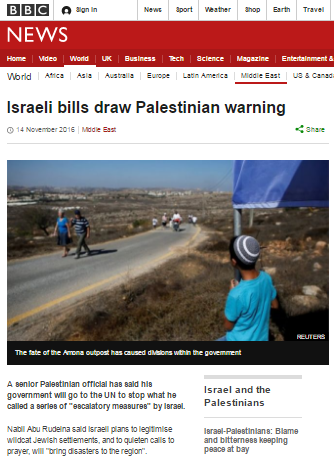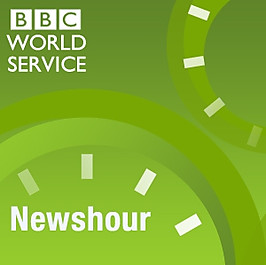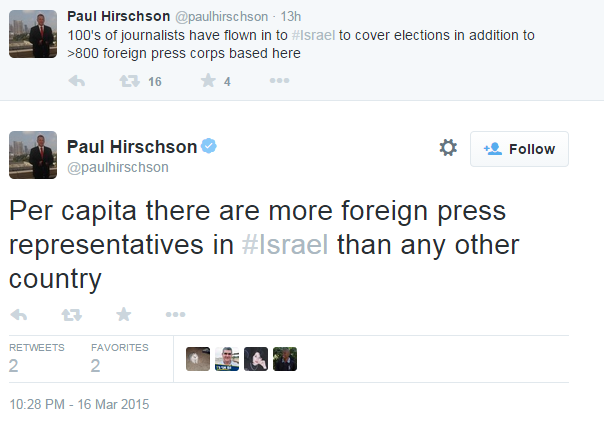On July 12th the BBC News website’s Middle East page published an article titled “EU criticises Israel law forcing NGOs to reveal foreign funding” which included some rather confused language in the description of its subject matter.
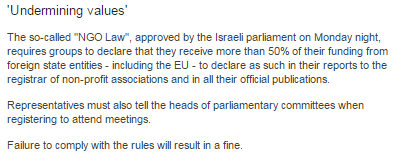
The article’s introductory paragraph provides an accurate description of the groups affected by the new law but does not clarify that “from abroad” means from foreign governments.
“The EU has criticised a controversial new Israeli law targeting non-governmental organisations that receive most of their funding from abroad.”
Further on in the article, however, those groups are given a different title which is clearly intended to shape audience perceptions of the story. [emphasis added]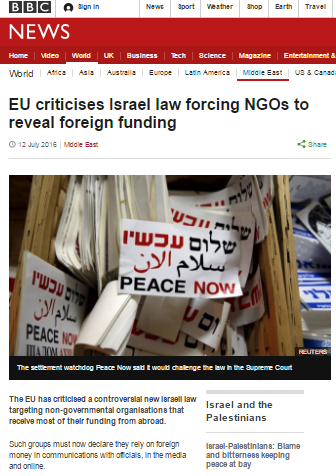
“But the EU said the requirements, which mostly affect human rights groups, went “beyond the need for transparency”.”
And:
“Analysis by the Israeli justice ministry found there were 27 NGOs in Israel that would be affected by the law, of which 25 were human rights groups identified with the Left, Israeli media reported.”
The link in that paragraph leads to a report from Ha’aretz which does not provide the names of those “human rights groups” but does include a link to another Ha’aretz article on that topic which is behind a pay wall and hence inaccessible to most readers. In other words, the BBC does not allow readers to judge for themselves whether or not the title “human rights groups” is justified and accurate in all cases. It does go on to tell them that:
“They include B’Tselem, which monitors human rights violations in the Occupied Territories, and Zochrot, which advocates for the return of Palestinian refugees and their descendants.”

The BBC’s report refrains from informing audiences that some of the 25 so-called “human rights groups” on that list support the anti-peace Boycott, Divestment and Sanctions campaign (for example Al Marsad, the Coalition of Women for Peace, Who Profits and Israel Social TV). It does not inform readers that some of those groups are anti-Zionist ‘one-staters’ that support the dissolution of the Jewish State (for example Zochrot and Sikkuy) and it does not tell them that quite a few of those groups are involved in lawfare campaigning against Israel (for example Bimkom, B’tselsm, Yesh Din and PCATI).
The article further amplifies the EU’s statement but provides no challenge to the inaccurate claim that “activities” of NGOs would be ‘constrained’ by the new law.
“But the EU’s External Action Service said the reporting requirements seemed “aimed at constraining the activities” of civil society organisations.
“Israel enjoys a vibrant democracy, freedom of speech and a diverse civil society which are an integral part of the values which Israel and the EU both hold dear. This new legislation risks undermining these values,” a spokesperson warned.”
No discussion of the topic of interference in a democracy by foreign governments is seen in this article and no mention is made of similar legislation in other countries. The rather glaring question of how groups receiving between 50 – 100% of their funding from foreign governments can call themselves ‘non-governmental organisations’ is ignored.
The article closes with unchallenged quotes from two political NGOs: ‘Human Rights Watch’ (which is not registered in Israel and therefore is not affected by the law) and ‘Peace Now’ which – despite the BBC’s description of it as “another affected group” – does not appear on the list.
‘Human Rights Watch’ is of course one of the NGOs most often quoted and promoted by the BBC. Several of the NGOs which will be affected by the new transparency law (e.g. ‘Breaking the Silence’, ‘Ir Amim’ and ‘B’tselem’) are also among the NGOs which are most frequently quoted by BBC journalists and/or provide source material for BBC reporting.
Clearly this report does not provide audiences with a realistic, accurate and impartial view of either the new legislation or some of the political NGOs it will affect. Given the BBC’s longstanding dismal record on informing its audiences of the “particular viewpoint” of the cadre of NGOs it quotes and promotes (in breach of editorial guidelines on impartiality) that will hardly come as a surprise to BBC Watch readers.
Related Articles:
The BBC’s Tim Franks and the ever ‘disappearing’ Jewish state
AP Headline on Israeli Law Breaks Journalistic Rule (CAMERA)


